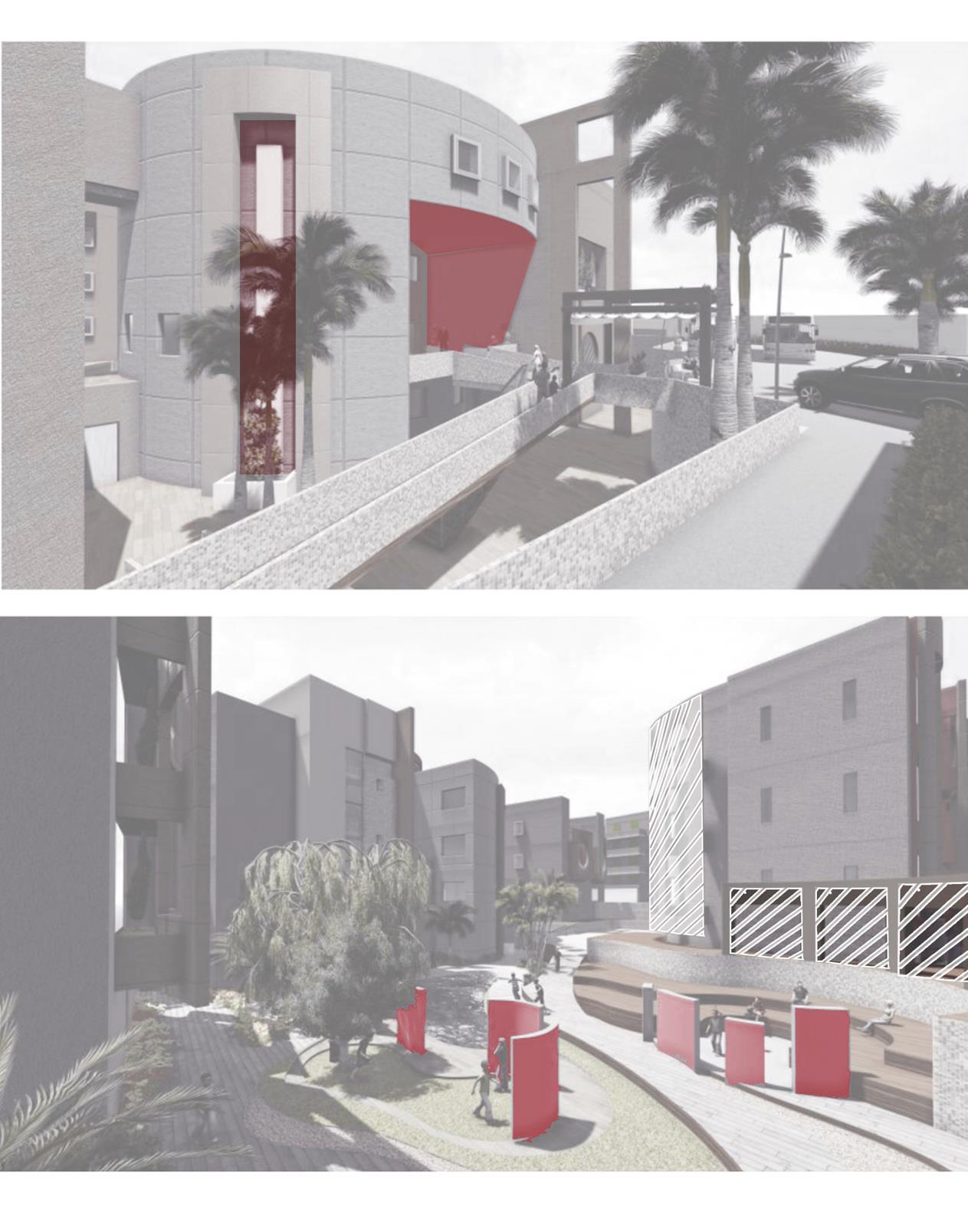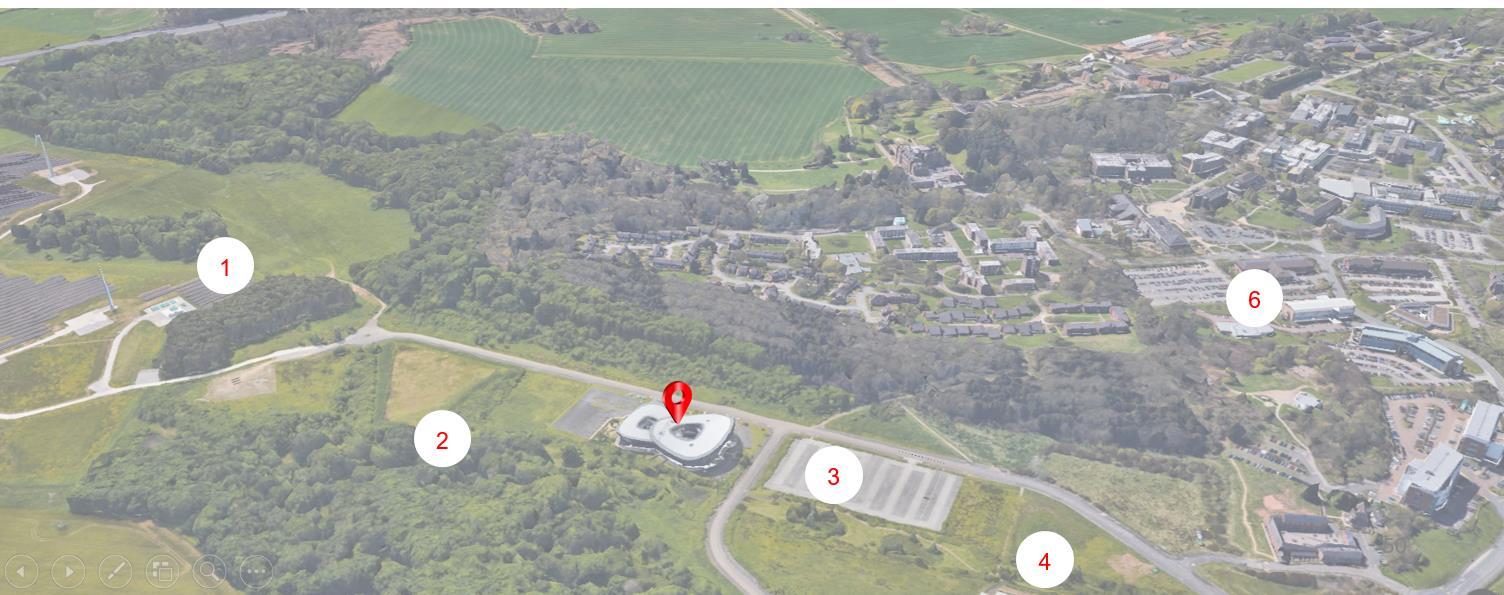
6 minute read
BEYOND THE WHITE Context
from Caudwell International Children’s Centre for autism - Case studies - Autism project
by asal rababah
1. Farms land
2. Greeneryareas
Advertisement
3. Parking
4. Harper & KeeleVeterinary School
5. Keeleuniversity

School Philosophy
The design of this center built in order toreducethetimewaitingoftreatment to help the huge number of autism people and their parents in According to Sky News “The average waiting time tobeassessedforautismisatleasttwo years, and the children who are eventually diagnosed wait on average for four years. The center, set in the groundsofKeeleUniversityin2017,will enablefamiliestogetadiagnosiswithin just six weeks. An early autism diagnosiscanbevitalinhelpingfamilies understand their child's behavior.”. The design of the form was adapted from thebutterflylogoofthecharity(Client). They used the wings of the butterfly as the mass of the main concept. The aim was to create an environment where children had fun and wanted to revisit without the pressure of feeling they were being assessed. The design epitomizes`inclusivity',withtheunique projectsurpassingtheUK'saccessibility and sustainability standards. The architect tried to work out to how children with sensory and social challenges could move around the building with the least amount of stress. Thearchitect thought Itcouldn't be just another hospital or health center, it had to be somewhere inspirational. [14]
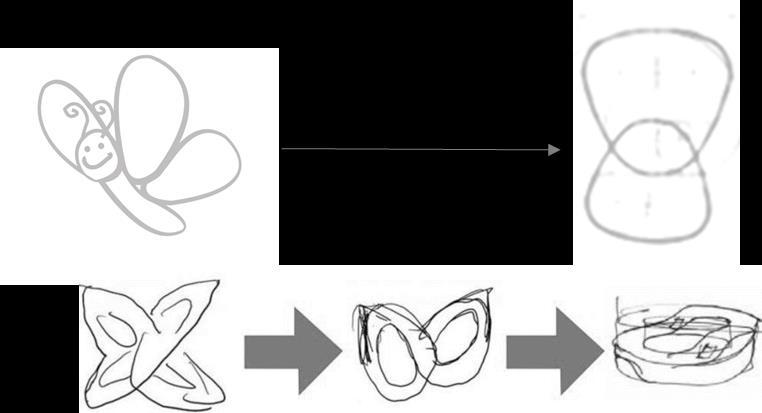

Program
The project's design is based on the autistic spectrum and other neurological disorders.as these illnesses are mainly associated to sensory perception. Project will give themsensory flexibility.[14
] There are two different zones in the building and each one separated from the other. In designing the interior spaces, the architect focused on the two cases of autism: HYPO and HYPER. The project was divided into two parts, one part For HYPO (the first wing) and the other For HYPER (the second wing).[14]
These two masses characterize with innercourtforeach,inordertoconnect the interior space with the outdoor environment. There are a different of height between these two masses, this done in a sustainable purpose, to connect children with outdoor and makethemfeelfree,andthisalsodone tocreatetheshapeofthebutterflywith the inclined celling. A safe place for individuals with autism to go to when they feel overwhelmed and overloaded.
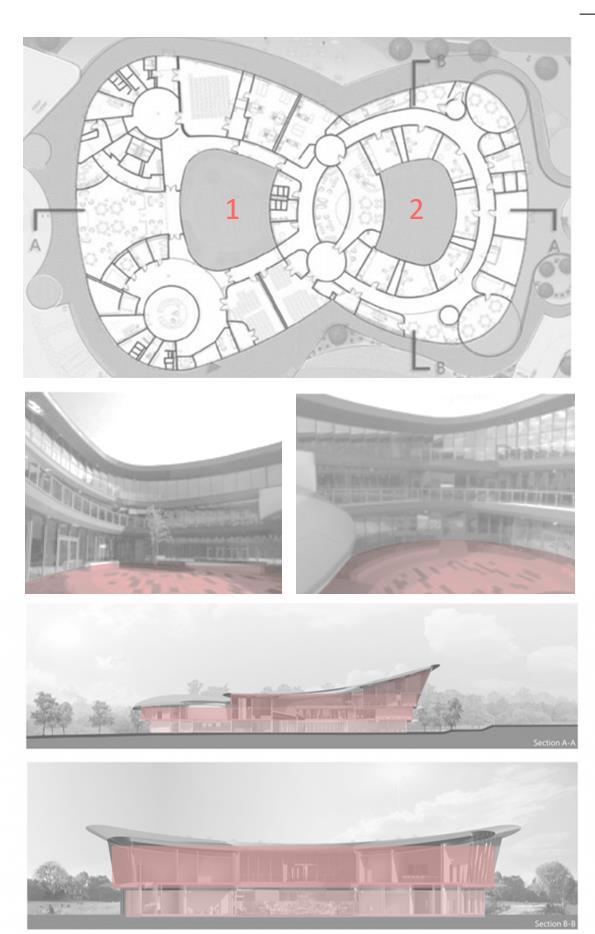
Program
Internally, the building had to reflect the way children with autism like to navigate and move, and to provide a calming sensory experience. The Hypo case required a space with characteristictheoppositeofthe space for HYPER case, which Hypo need to feelfree,comfortable,ahomelydesign, assorted with nature, simple navigation, open spaces and connect withnature.withierHypercaseneedto feel secure, simple and modern design, no sun glare, reduce visual stimulus, private spaces, safe outdoor spaces>[14]
Circulation
Themaincirculationsystemisacircular path which centered around the main to courts, Inside, 360-degree loop corridors discourage children from running and, by going away with harsh, right-angled corners, reduce the anxiety of surprise encounters.
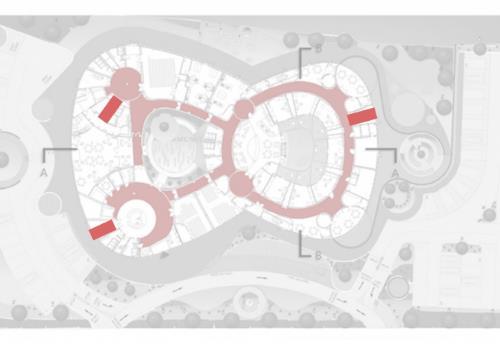
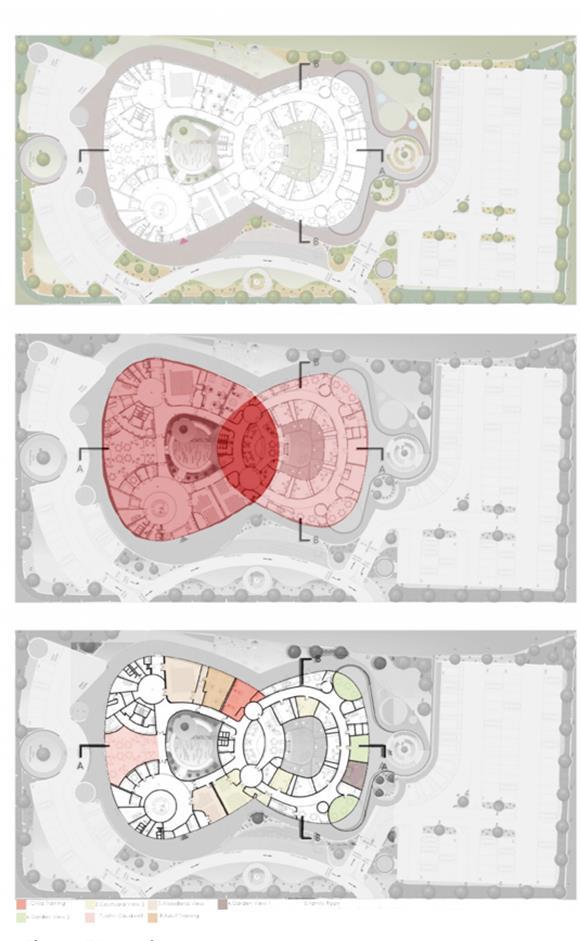
Form and materials
The curve and smooth shape give the feeling of relax and less amount of stressunliketherightandsharpangles. The roof of the building needs smooth lines and curves to fits the concept of the butterfly. Skylights to provide natural light for hyposensitive users as theydetestdirectsunlight.Glazingwith shaded louversto diffuse light
To manage their sensory stimulation, materials choose smooth and secure, suchasvinylfloors,carpet,andcushion panels on walls painted in soft hues. StonePanelTM,amaterialusedtocoat exterior façades to design a structure that looked natural, warm and inviting. The curvilinear shape is both good look andpractical.anaturallyoccurringgrey quartzite with blue undertones that givestheCenterafeelingofbrightness, warmth, and freshness.[14]
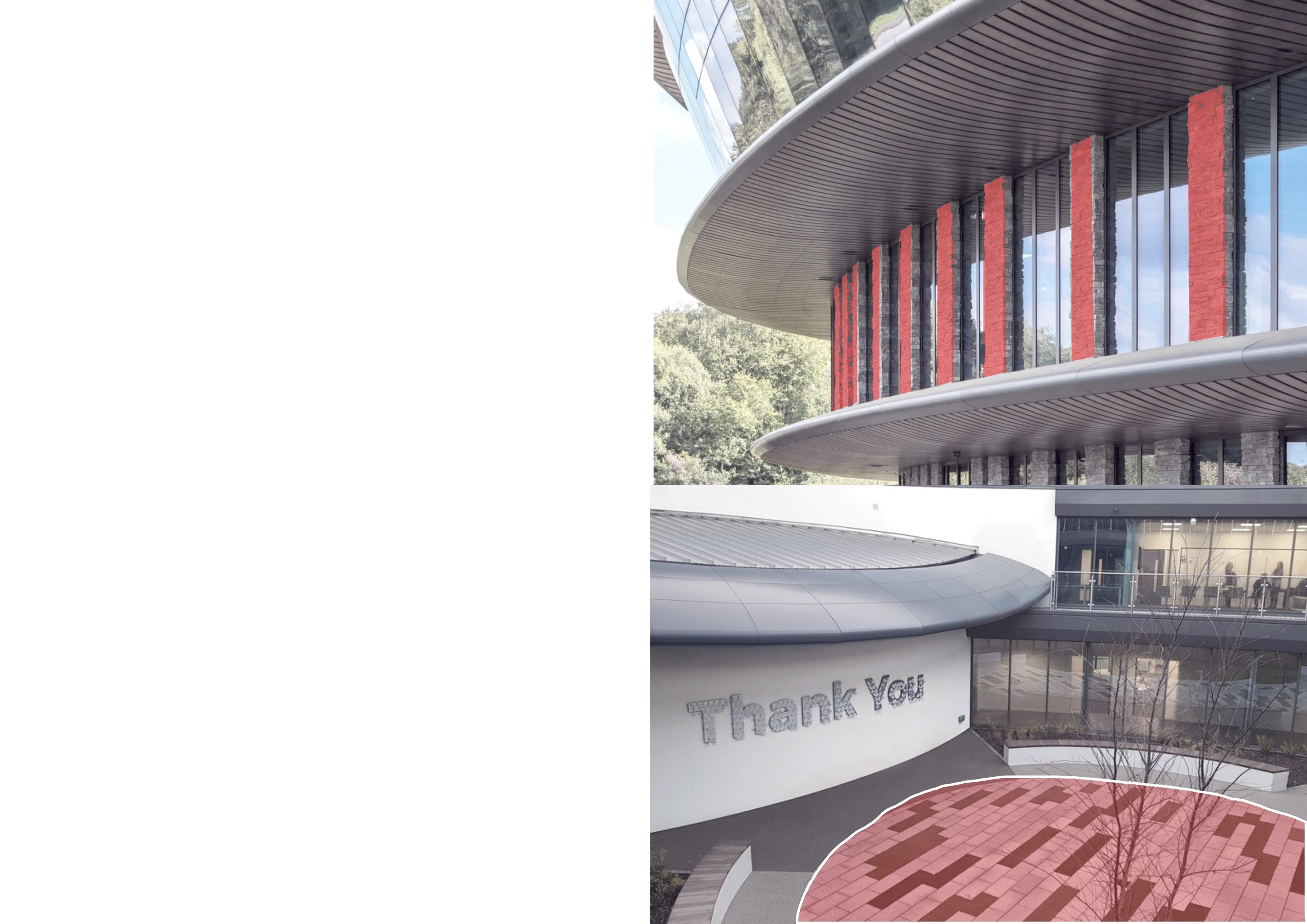
Structure
the project is a three-story building with structure of columns and beams and frames structure's unique roof of the project done through many processes, and then established a zone below this roof to fit all the structure. The steel roof thus formed compromised a complicated mix of facetted, raking and curved elements fitted within the allotted zone to form the basic steel skeleton onto which the roof finishes could beapplied.[14]
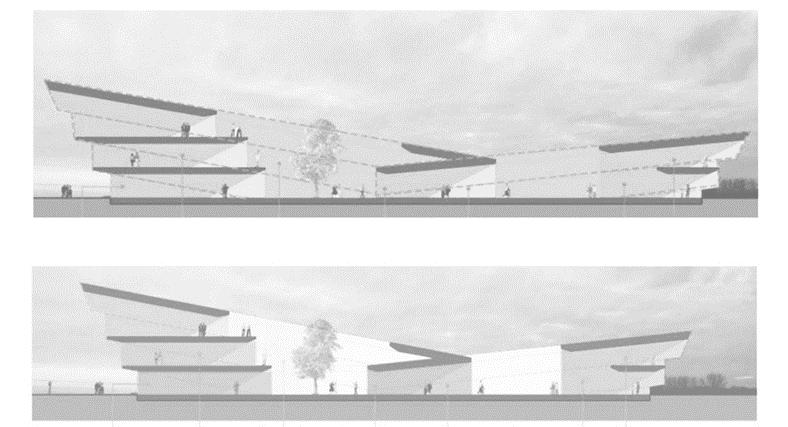
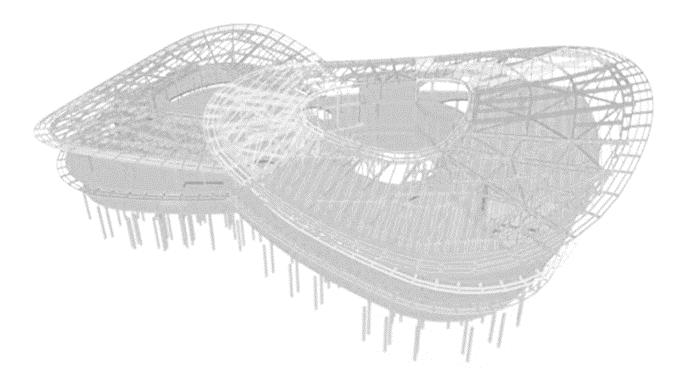
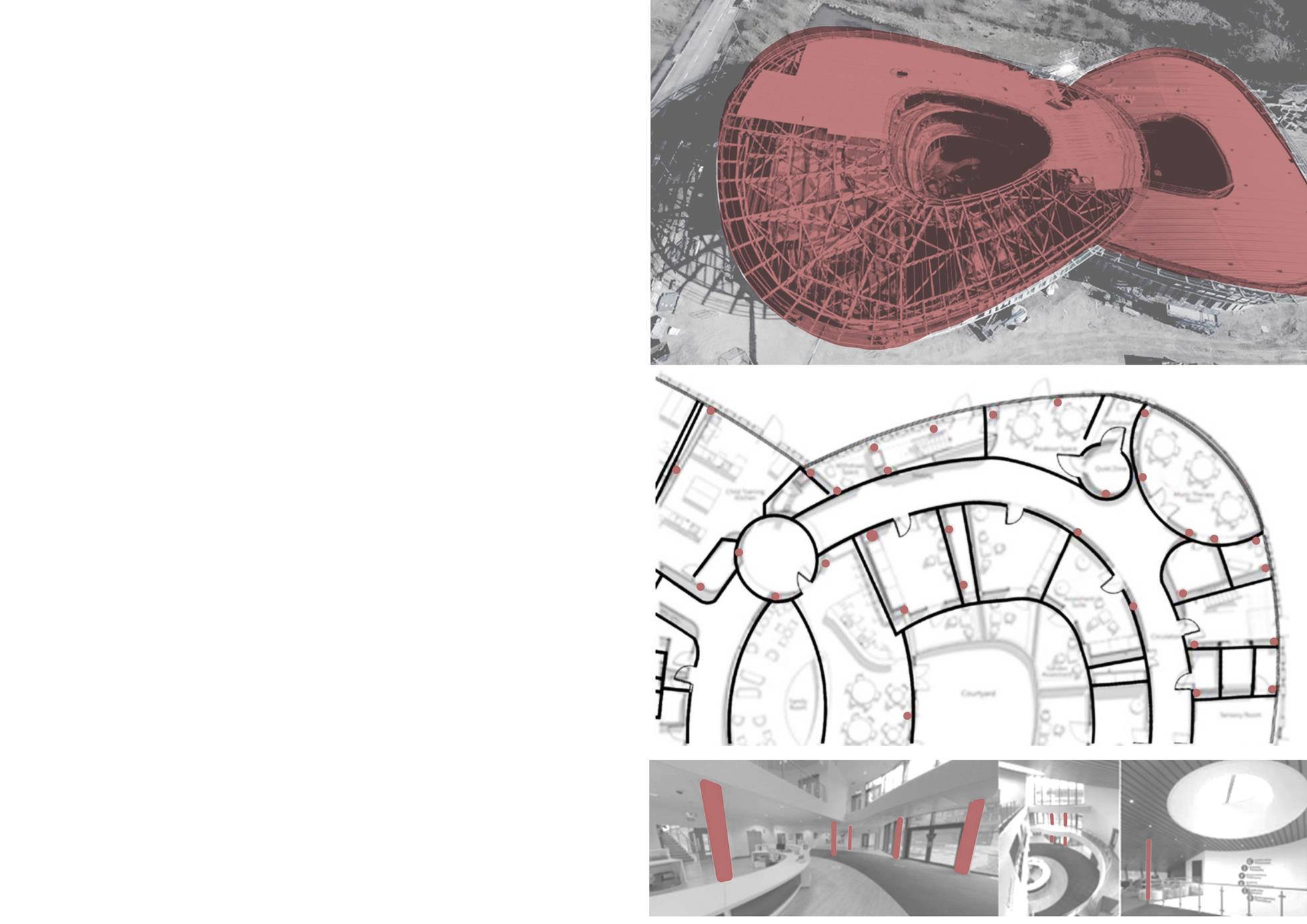
Interior design and details
The project includes a variety of space types and forms to meet the functions that aredesignedforit.Theprojectwill also have an inclusive design and a calmingsensoryexperience.thecurved interior decor and curved furniture's give a feeling of simplicity and relaxation. the floor is vinyl, kids may playonitwithoutrisk.theuseofpurple color is an uplifting and calming color.[14]
The majority of the rooms havenatural light, which helps children's feel more at ease, and the height is also appropriate for them to feel unrestricted. Ground Level Trampoline
Designed for wheelchair users, Carved Boulder from a glacial boulder found in the woodland this feature will provide seating and another great place for children to curl up inside. Spinning Stone Four-ton oval boulder with recessed di-agonal groove and foundation anchor. The boulder height is approximately 2.00m and the diameter is 1.50m. Many children with autism enjoy the motion of spinning something. Smelling Pots Little protected flasks are placed in stainless steel stations and these can be filled with a multitude of Zoflora fragrances.
[14]
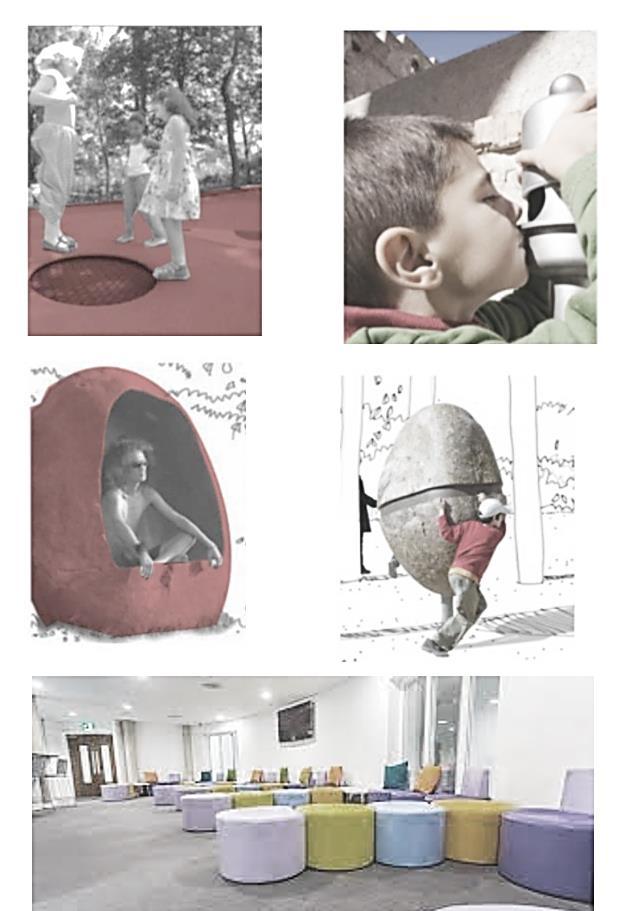
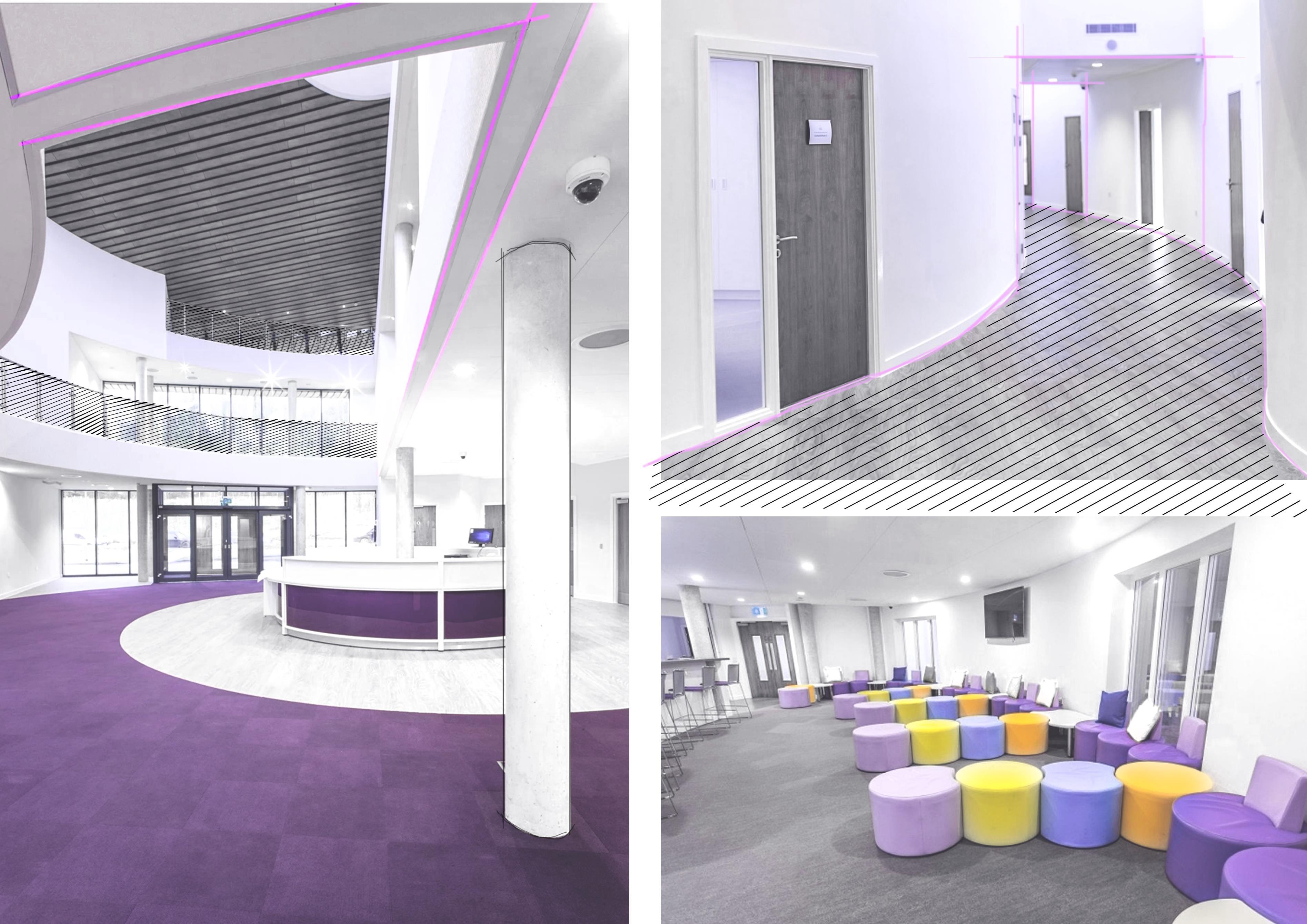

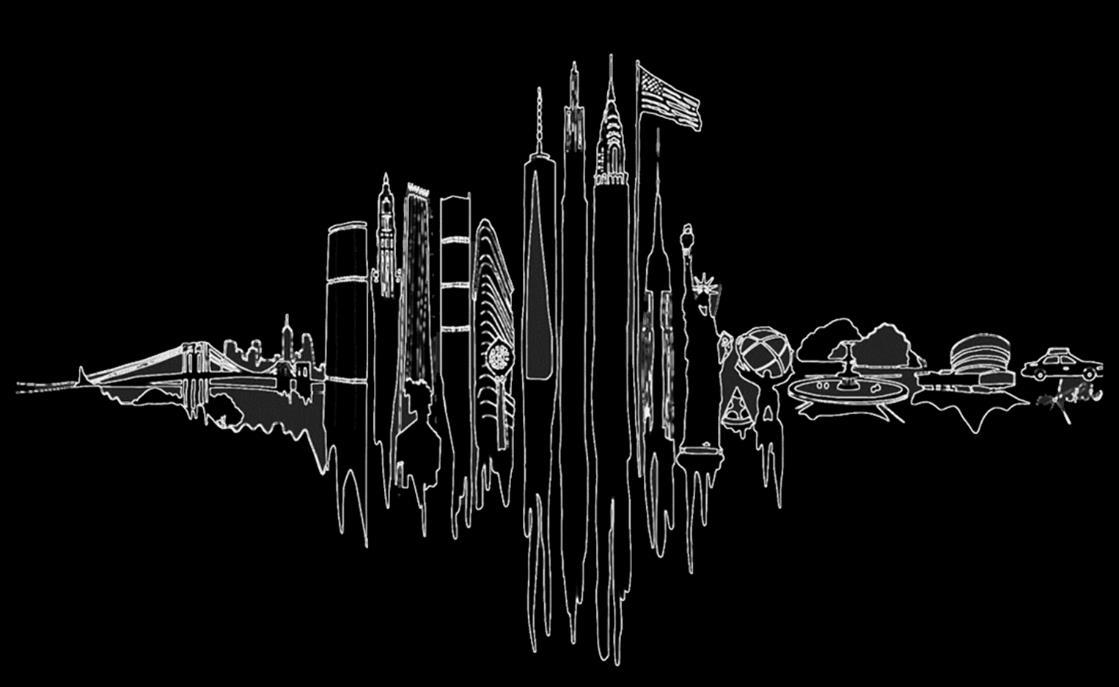
Conclusion
What if there is a building, provide a space that matches your mood. When it comes to autism, the way they feel are key elements of the design, in this case, architect designed the best program for the two main cases of autism.
courtyard in the inner zone works with connection with the natural environment and is a sustainable strategy. And also helping with calm and relax which is the main principle of the design, we can see the architect also emphasizethis with curved shapes and furniture as well as purple color choice in the interior space. the seventh.
Advanced School
Typology School
Location Thenew Cairo, Egypt
Architect Magda Mostafa
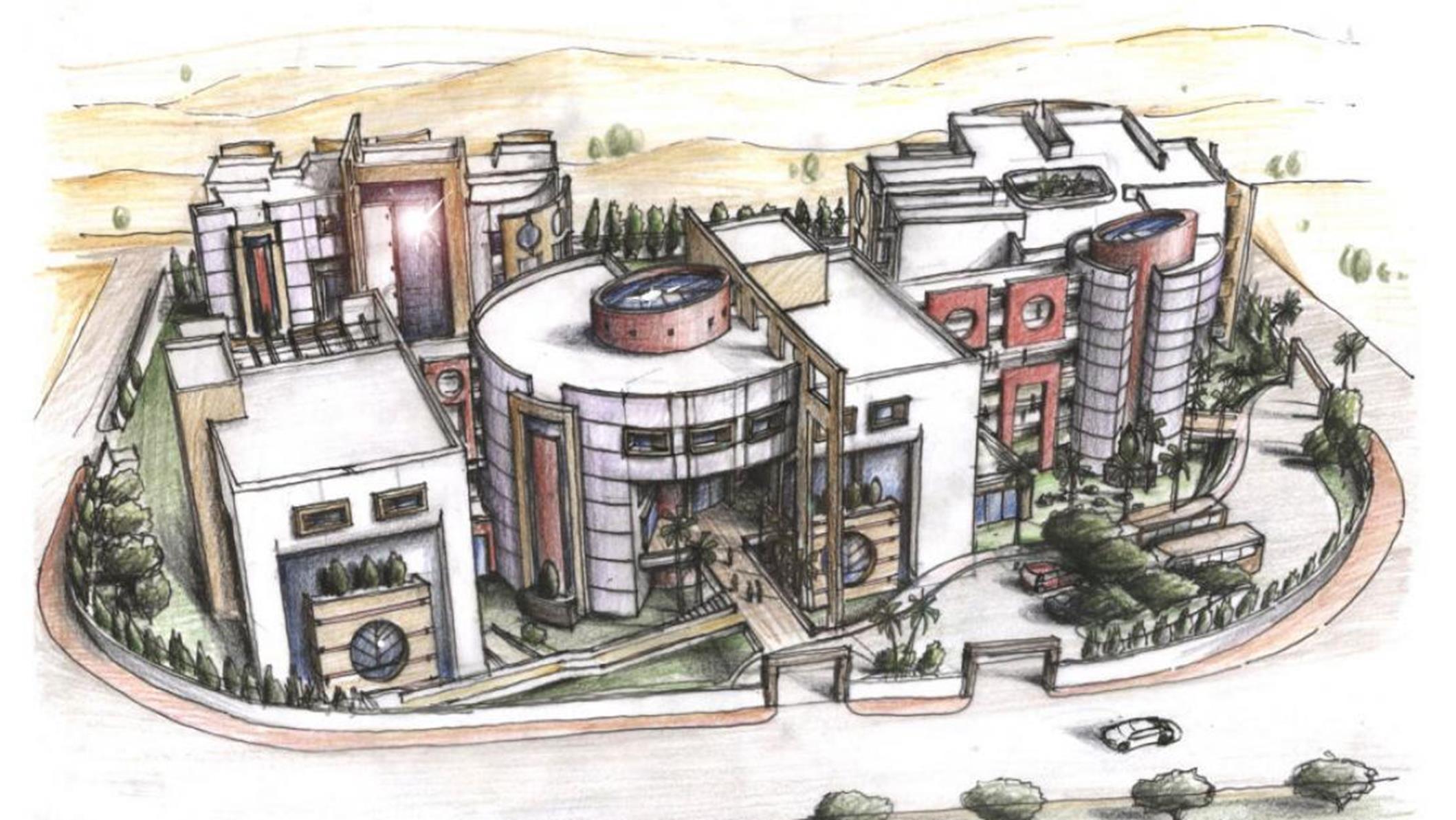

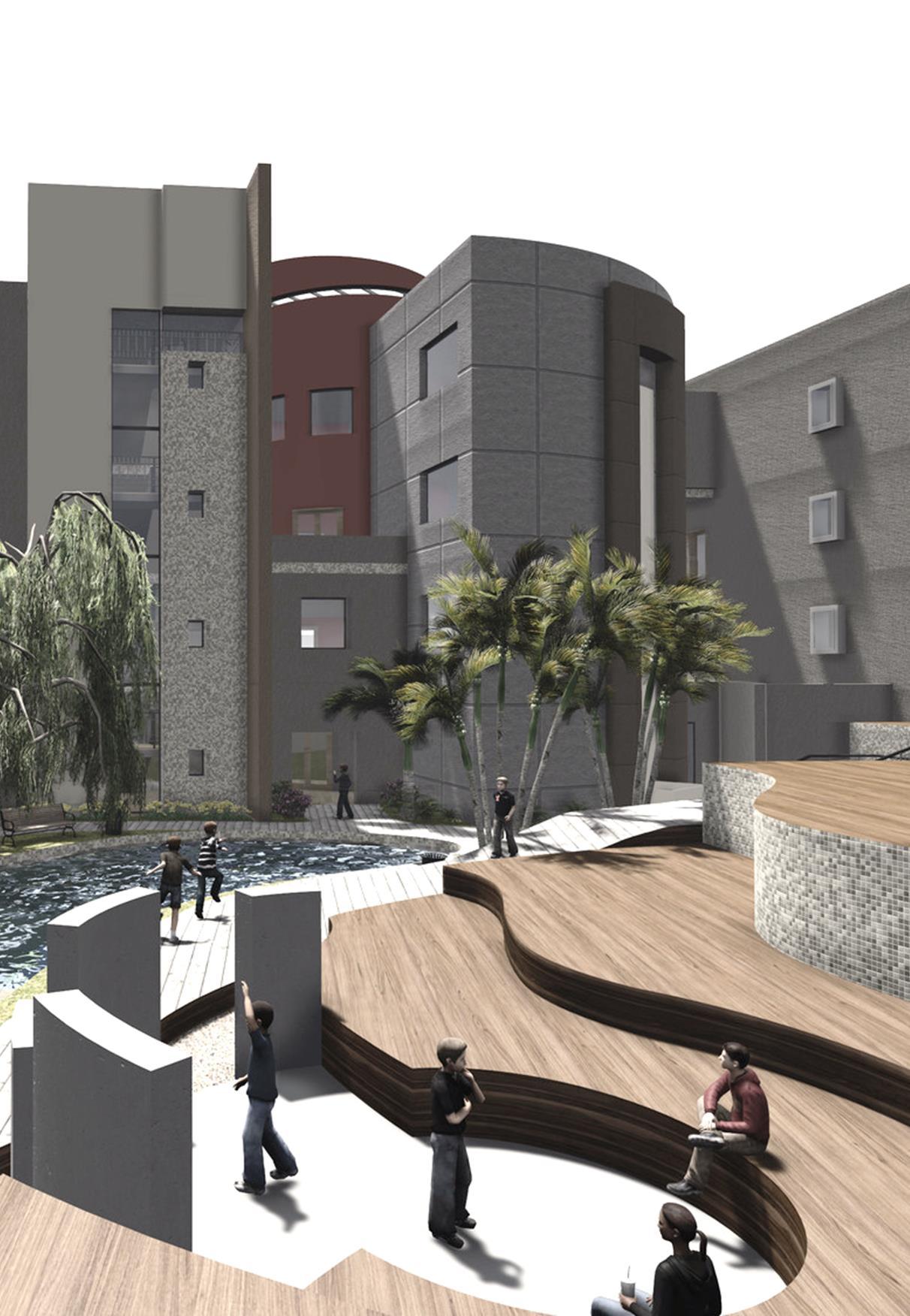
Why this case?
As the categories of the proposed project, this case design for autism and design in a way to help children with autism and their families. This design school provide a spital experience for autistic people with outdoor environment in a way to enhance their creativity and improve their skills. This design upon the index development ASPECTSS.
Location
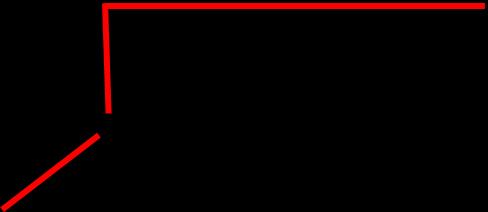
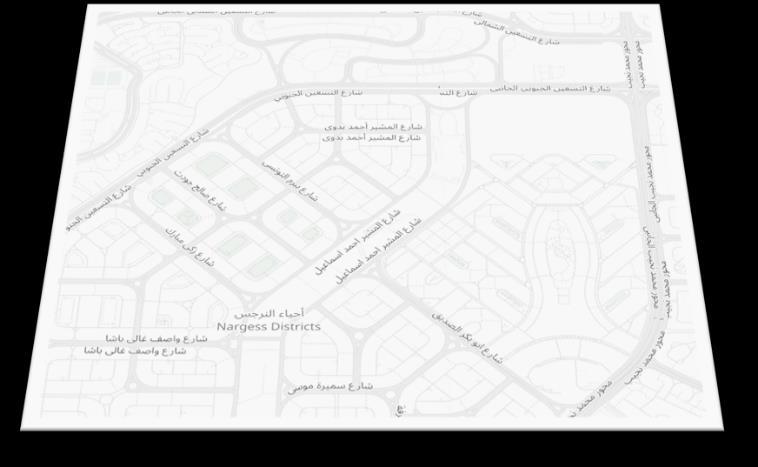
The advance center is located in a suburban area of the Qattameya district, which is part of new Cairo, distant from the pollution of Cairo's urban center. Project is located in the heart of its immediate neighboring residential area, [9] In a commercial planned zone in new Cairo, in a relatively new neighborhood that containsmultipleschoolsandnurseries adjacent to the site as capital international school, and little heroes’ nursery. The project area is flat of topography, there are no different levels upon the surface, also there is hierarchy and harmony in skyline and views due to the same level point but different height peakpoints.
Accessibility
From themain street
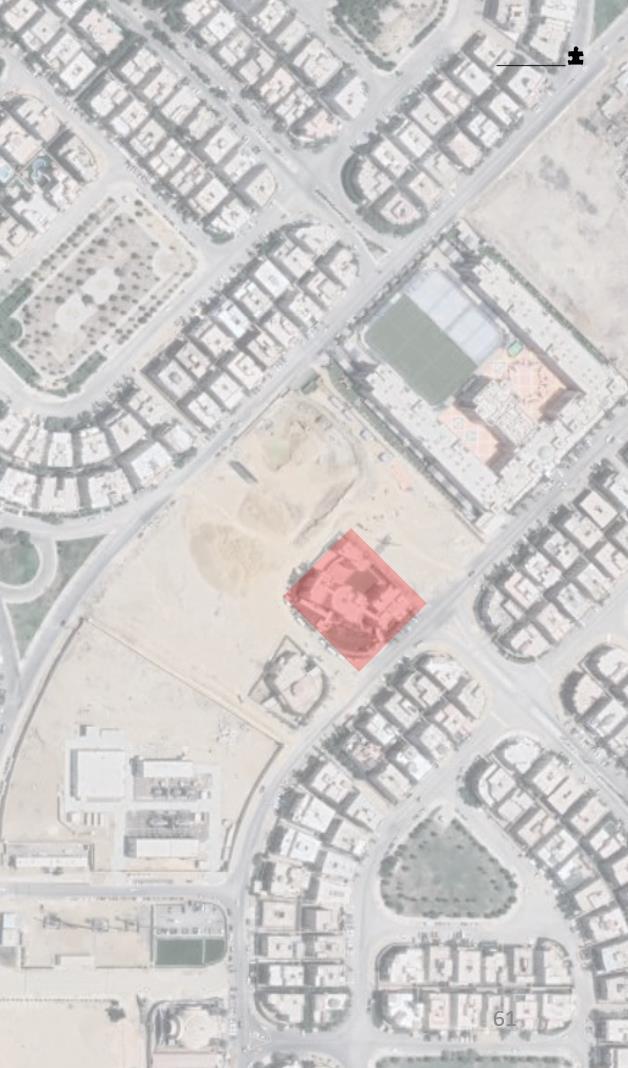
BEYOND THE WHITE Context
1. Residential Zone
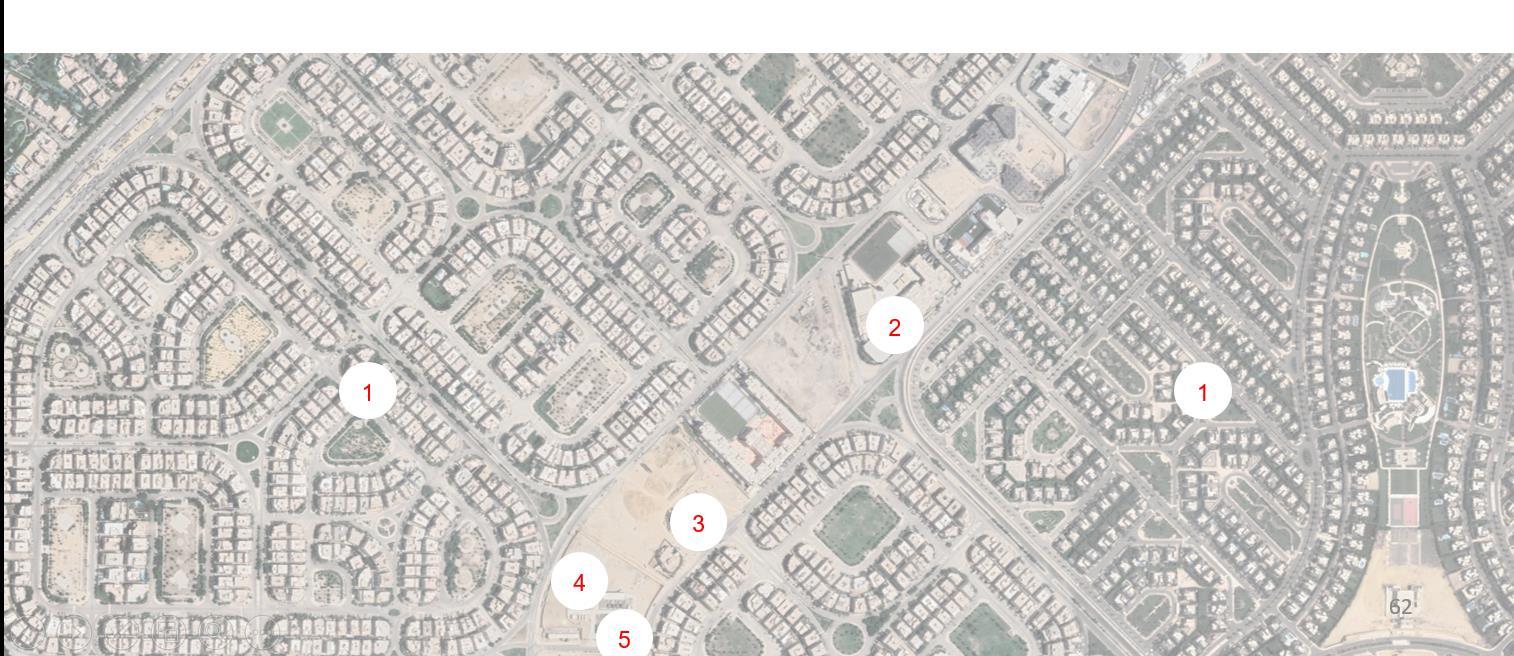
2. American College
3. Mosque
4. PowerStation
5. Church

School Philosophy
This project is done as one of the outcome of Magda Mostafa research aboutautismandwhattheyreallyneed from the community, One of her innovationoftheresearch isASPECTSS, which is a design index establishing parameters to create environments favorable for autistic users, Making advancespecialneedseducationcenter –MagdaMostafa apioneer in this area. [15
This project is based on the main concepts of ASPECTESS,as it contains 7 elements, each element has a special requirement to design for autism. The project provides service to children with autism, as it aims to develop children'sabilities,especiallytheability to social interaction. The project is also based on another goal, which is to increase community awareness of autism and its conditions. The main reason for choosing this site and designinginthiswaywastoavoidnoise or any sensory stimuli that might affect the education and training process withintheproject.Sinceautisticpeople are greatly affected by any sensory input,even if it issimple.[15]
Theideaofintegratingchildrenintothe community was implemented through two methods. The first is through local shops inside the project, and the second is the sensory garden that contains some vegetables and fruits that are shared with the outside community.
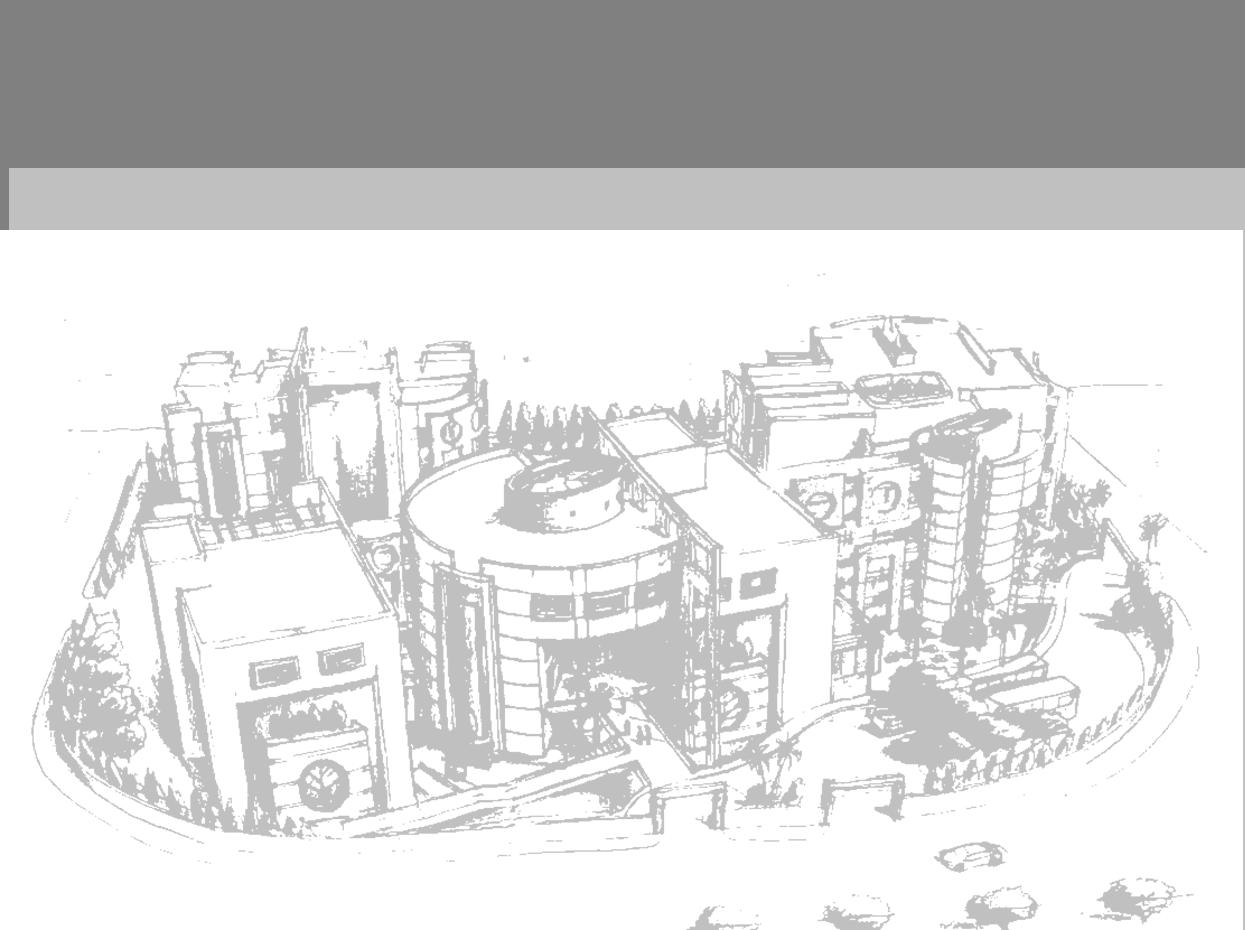
Program
The spaces in the project are divided based on the type of space and the sensory effects in it, and it is divided into high stimulus areas, low stimulus areas, and thetransitionarea.
Highstimulusareasincludeclassrooms, drawing and music spaces, which are areas of high concentration, while low stimulus areas include treatment and training areas, which need less focus, and the transition zones which are either gardens or playgrounds, located between each of thestimulus areas.
In the sensory garden, there are many experiences for students, perhaps the most important of which is training children on sustainable practices for the environment, such as agriculture, where students can plant, the simple design and how to separate spaces according to the stimulus. The circulation is a straight path in one direction to emphasize the idea of the rotation.[15]
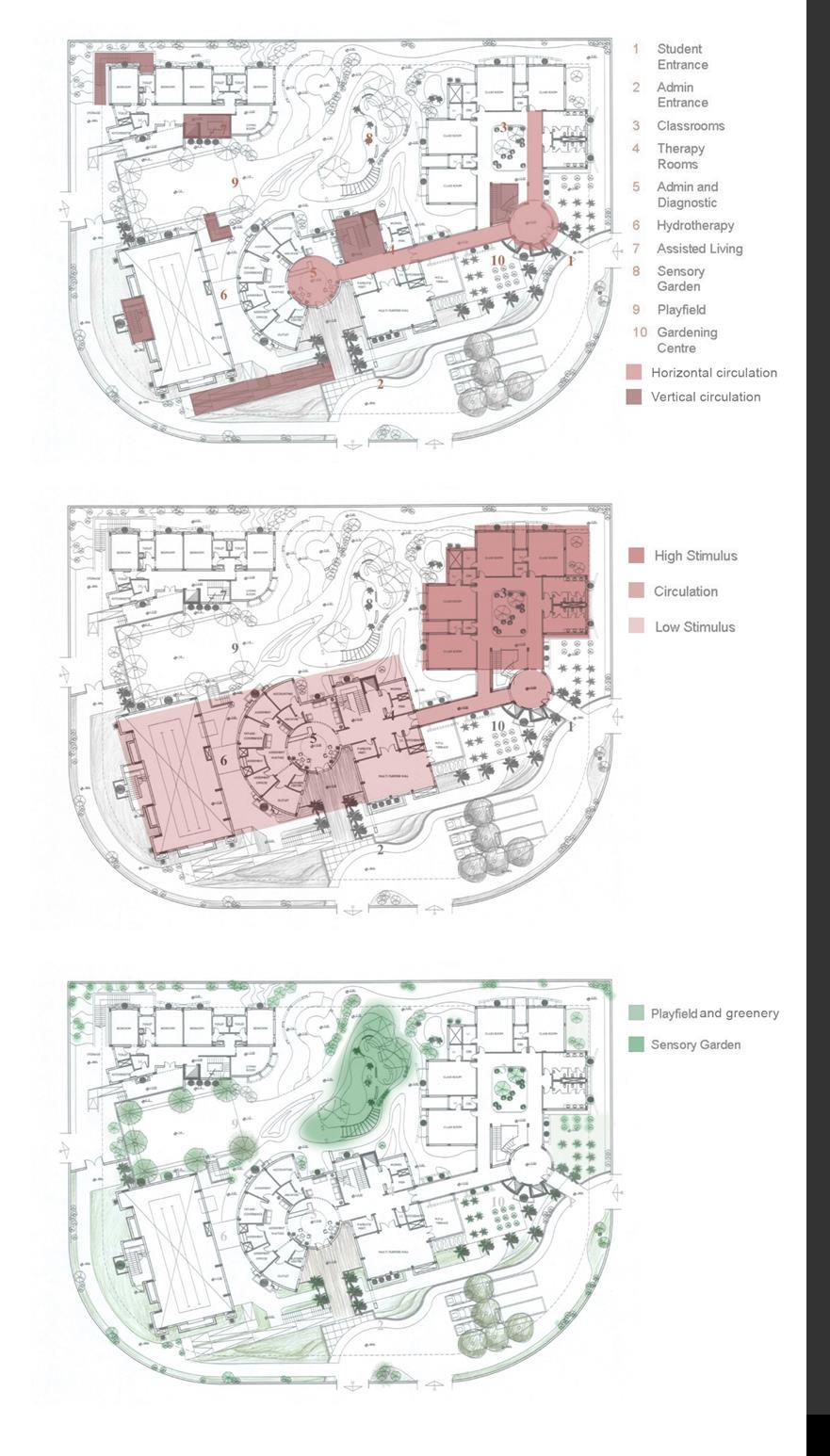
Form and materials
The design of the form relied on more than one shape and in different height, and it also had more than one color for the facade’s material, but most of them tended to be light color to emphasize on calmness and simplicity.
The main materials that had been used is the reinforced concrete all over the facadeindifferentcolors,architectalso created a cavity in the masses in order tointegratethemasswithsomenatural vegetation. This also done as a sustainable strategy. The glass screens to allow break down the sun light into theinterior spaceswithout any heat.
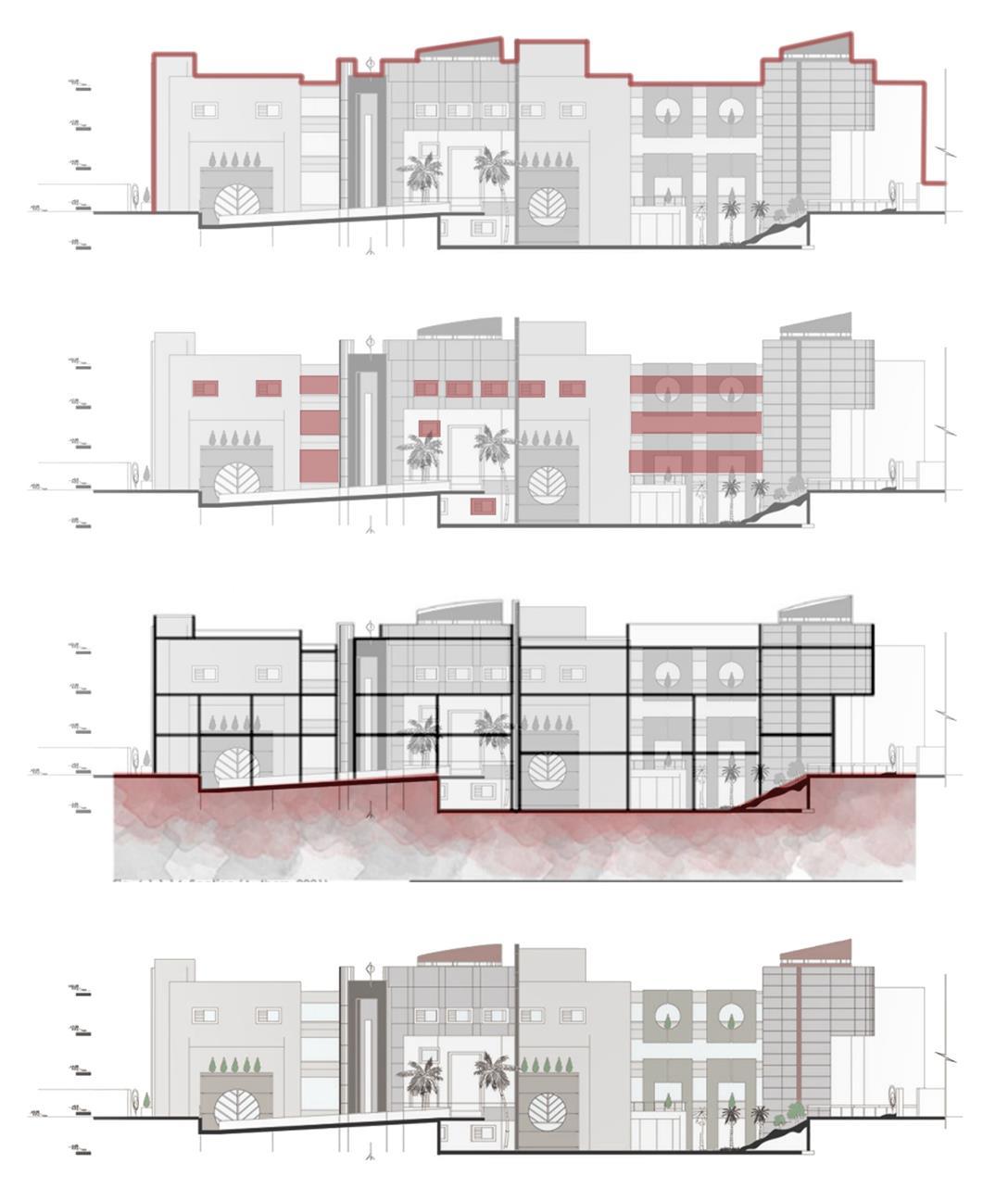
Details
One of themost important elementsof theproject isthepointswherechildren connect with the external environment and the community, and it came in different zone, the first of which is the sensory garden and its components, shops, and finally a large swimming pool located inside the building, which isforcompetitionsandintegrationwith the schools that surrounding the project.
Such activities enhance and develops theabilitiesofstudents,andalsomakes theworldseethecapabilitiesofautistic children. In the sensory garden, there are Freestandingconcretewallstohelp children draw and express what is insidethem.[15]
